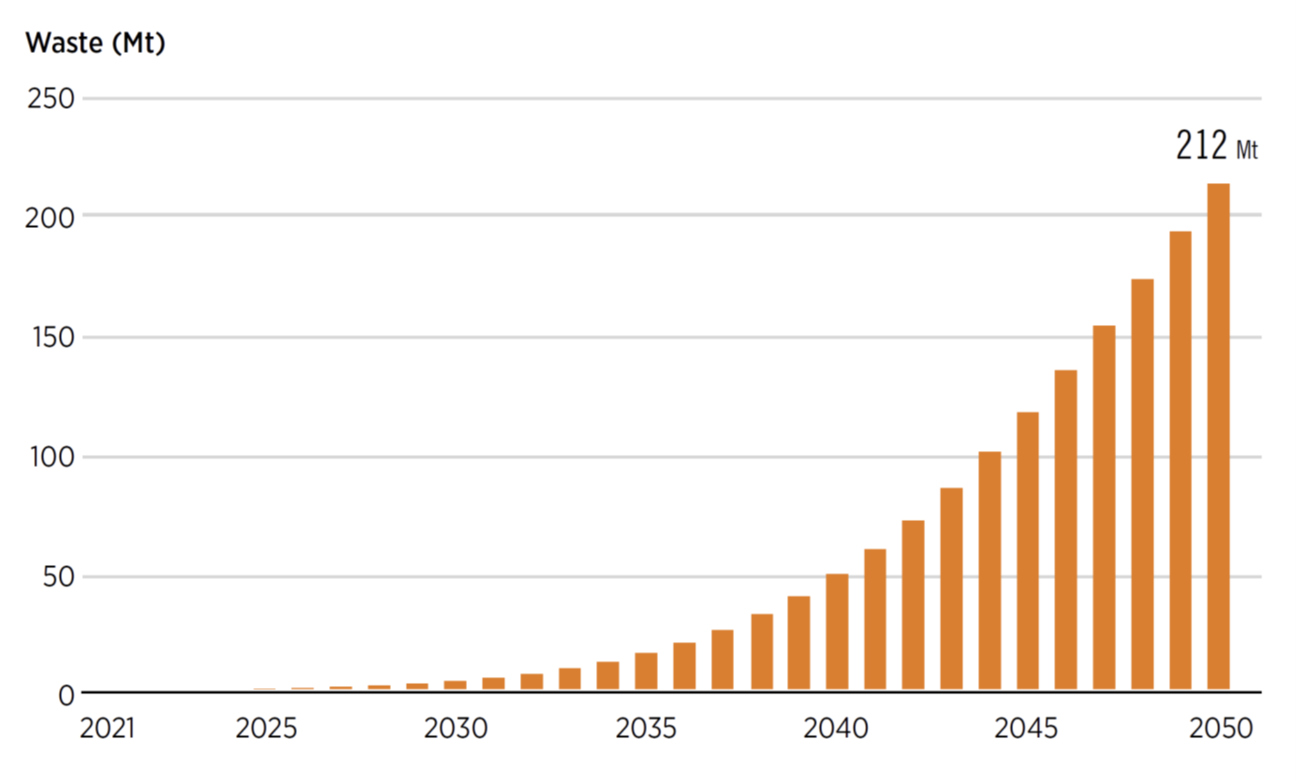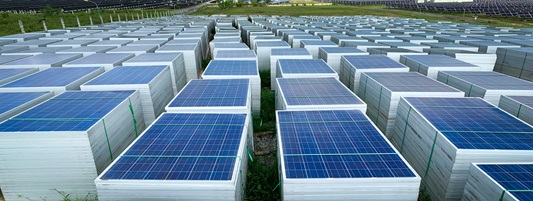Overview
Circular economy practices are one of the most important pillars for achieving emission reduction targets and accelerating the energy transition. They are expected to play a significant role in the pursuit of efficiency improvements over the medium and long term. A circular economy approach can avoid unnecessary adverse environmental impacts, build synergies and deliver economic and social benefits.
Renewable energy deployment has been accelerating globally in recent decades, presenting a new environmental challenge as decommissioned renewable energy equipment enters the waste stream in the years ahead. Solar photovoltaic (PV) is among those presenting the most significant challenges. As the global PV market increases, so will the volume of decommissioned PV panels, and large amounts of annual waste are anticipated by the early 2030s. IRENA projects that waste from cumulative solar PV projects globally will increase from 0.2 Mt in 2021 to 4 Mt in 2030, almost 50 Mt in 2040 and more than 200 Mt by 2050. G20 member countries will contribute most of the projected waste.

Sustainable end-of-life management of solar PV panels offers attractive opportunities to recycle critical materials and pursue new economic avenues. Following circular economy principles, waste solar PV panels can be restored, reused and recycled. Under IRENA’s 1.5°C Scenario, more than 17.7 Mt of raw materials could be recycled from solar PV panel waste by 2050, creating about USD 8.8 billion of value.
Addressing solar PV waste challenges and unlocking the full potential of a circular economy requires a comprehensive and sound policy framework that has to be put into place now, before waste becomes a problem, through government-led regulations, industry-led initiatives and public–private partnerships. The policy framework should include: regulations that establish clearly defined recycling responsibility, standardisation and certification; data collection and reporting systems; financial and fiscal policies; research, development and demonstration of recycling technologies; and public awareness-raising.
Since 2016 IRENA has been working with partners to project volumes of solar PV waste in the energy transition and identify potential circular economy opportunities through reducing, reusing and recycling principles. Analysis also includes identifying a holistic policy framework for policy makers and stakeholders to ensure the sustainable end-of-life management of solar PV, supported by case studies and policy examples.



